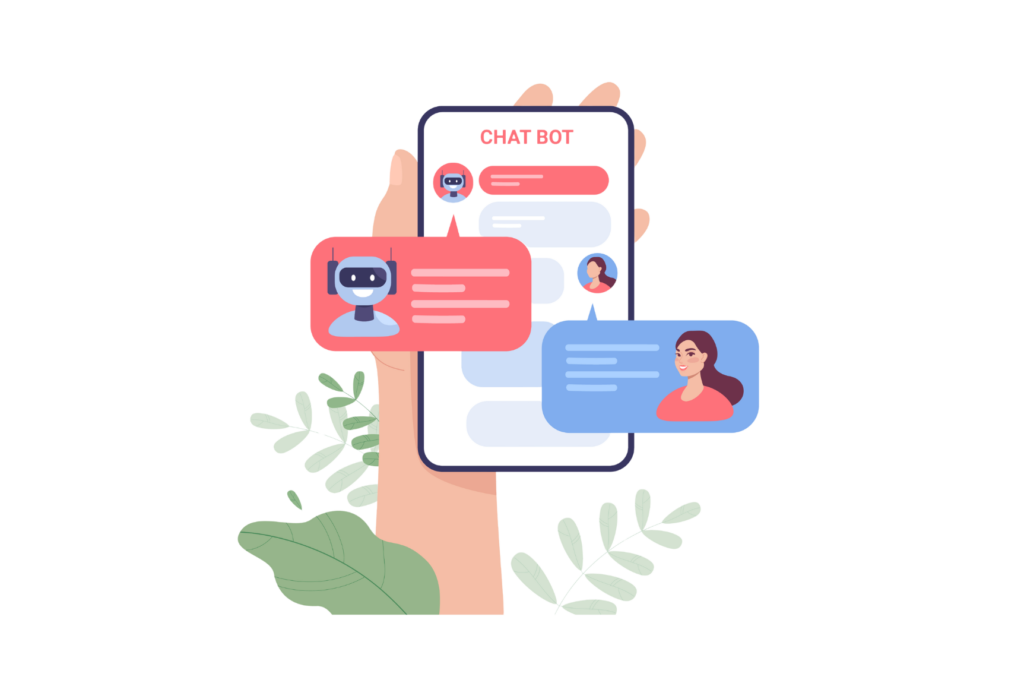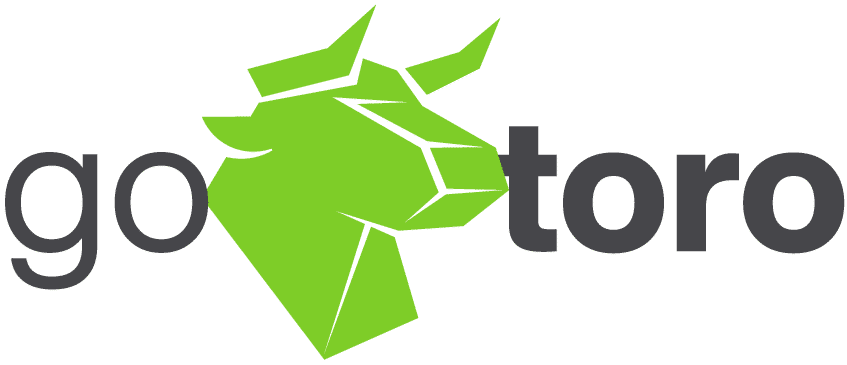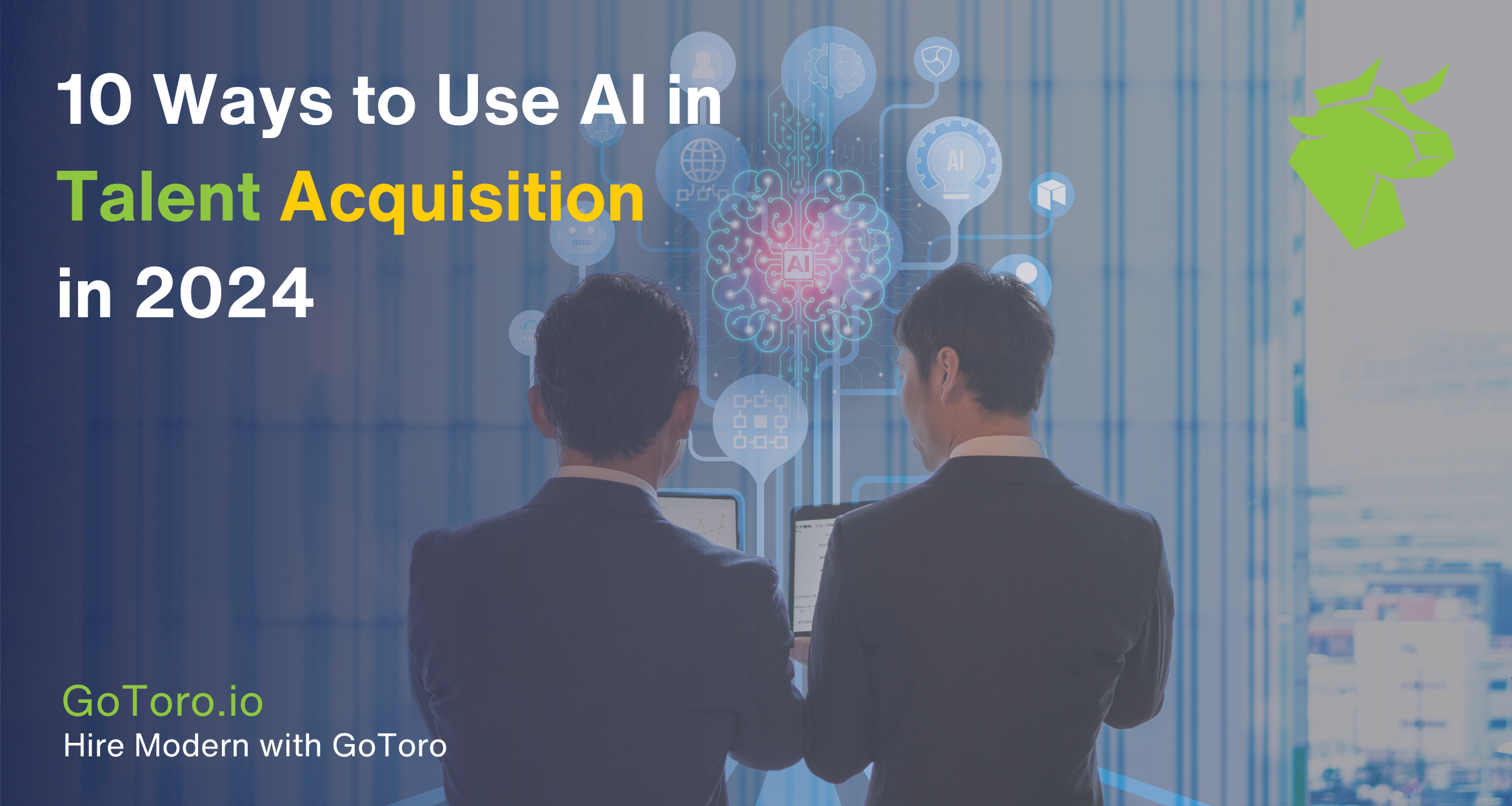In today’s fast-paced and highly competitive business environment, the importance of effective talent acquisition cannot be overstated. Finding the right talent is not just about filling a vacancy; it’s about securing the human capital essential for driving innovation, growth, and long-term success. This critical process is undergoing a transformation, thanks in large part to the rapid advancements in AI technology.
AI’s role in various business sectors has been expanding at an unprecedented rate, and Human Resources (HR) is no exception. The fusion of AI in talent acquisition is not just a trend; it’s becoming a necessity for companies seeking to stay ahead in the race for top talent. In 2024, we’re witnessing AI not only streamlining recruitment processes but also enhancing decision-making with data-driven insights.
This blog aims to delve into how AI is revolutionizing talent acquisition in 2024. From smarter job postings to more efficient resume screening, AI is reshaping the recruitment landscape. Let’s explore the ways in which this technology is setting new benchmarks in the HR domain.
1. AI-Driven Job Posting Optimization

A crucial step in talent acquisition is the creation of job postings that attract the right candidates. This is where AI steps in with its capability to optimize job postings for maximum reach and engagement. Utilizing AI in talent acquisition means employing sophisticated algorithms that analyze job descriptions, comparing them against a database of successful past postings. This analysis helps in identifying key phrases, skills, and requirements that resonate with desired candidates.
AI tools can suggest modifications to job descriptions, ensuring they are not only SEO-friendly but also appealing to the target demographic. This level of optimization leads to a higher visibility of postings in job search engines and social media platforms, effectively drawing in a larger and more relevant pool of applicants.
2. Automated Resume Screening
One of the most time-consuming aspects of recruitment is sifting through the multitude of resumes. AI in talent acquisition brings a game-changing solution to this challenge: automated resume screening. By employing AI algorithms, companies can quickly and efficiently process large volumes of resumes, identifying candidates who best match the job requirements.
These AI systems are trained to screen resumes based on predefined criteria such as education, experience, skills, and even specific achievements. What makes AI particularly advantageous in this process is its ability to reduce human biases that might inadvertently affect the selection process. By focusing on the facts and data presented in resumes, AI ensures a more objective and fair evaluation of candidates. This not only streamlines the recruitment process but also helps in identifying the most suitable candidates for a position, thereby enhancing the overall quality of talent acquisition.
3. Enhanced Candidate Sourcing with AI in Talent Acquisition

The landscape of talent acquisition is continually evolving, and AI is at the forefront of this transformation, particularly in the realm of candidate sourcing. AI tools are now pivotal in scouring through various platforms and databases to find the perfect candidates for a role. This aspect of AI in talent acquisition represents a significant leap from traditional sourcing methods.
One of the most remarkable capabilities of AI is its ability to identify passive candidates. These are individuals who may not be actively seeking new job opportunities but are a great fit for the role based on their skills, experience, and potential. AI algorithms can analyze myriad data points from various online profiles, professional networking sites, and job boards to pinpoint these passive candidates. By doing so, AI broadens the talent pool, bringing in prospects that would otherwise remain unnoticed.
AI-driven tools go beyond just matching keywords in profiles; they understand the nuances of a candidate’s career trajectory, skill endorsements, and even the tone and context of their online professional interactions. This depth of analysis ensures that the sourcing is not just wide-reaching but also incredibly targeted, significantly enhancing the efficiency and effectiveness of talent acquisition.
4. Predictive Analytics for Candidate Success

Predictive analytics is another area where AI is making a significant impact in talent acquisition. By leveraging this technology, organizations can forecast a candidate’s potential success and tenure at the company. This forward-looking approach is revolutionizing how HR departments make hiring decisions.
AI in talent acquisition employs predictive analytics by analyzing a range of metrics and data points. These may include a candidate’s work history, educational background, skill set, and even their performance in previous roles. Additionally, AI can assess softer aspects like cultural fit and adaptability, which are crucial for long-term success in a role.
For instance, AI might analyze patterns in a candidate’s career progression, looking for signs of professional growth, stability, and the types of environments in which they thrive. It could also evaluate historical data from the company’s past hiring successes and failures, learning what traits and characteristics have led to successful tenures.
By integrating these insights, AI provides a comprehensive prediction of how well a candidate is likely to perform and fit into the organization. This not only helps in making more informed hiring decisions but also reduces the risk and cost associated with high turnover rates. The use of predictive analytics in AI for talent acquisition is a testament to how technology is not just streamlining processes but also adding strategic value to HR functions.
5. AI-Powered Skill Assessments in Talent Acquisition
The integration of AI in talent acquisition has brought a significant shift in how skill assessments are administered and evaluated. AI-powered skill assessments are transforming the landscape of talent evaluation by providing a more efficient, accurate, and unbiased way of assessing candidate capabilities.
AI systems can administer various types of skill assessment tests, ranging from technical knowledge evaluations to cognitive ability tests. These AI-driven assessments are designed to measure a candidate’s skills in a standardized and objective manner, ensuring that every candidate is evaluated on the same criteria, thus reducing human biases.
One of the key benefits of using AI for skill assessments is the ability to process and analyze results quickly and accurately. AI algorithms can evaluate responses, grade tests, and even provide insights into a candidate’s strengths and areas for improvement. This level of detailed analysis allows hiring managers to make more informed decisions and ensures that candidates are selected based on their true potential and relevant skills.
6. Intelligent Chatbots for Initial Screening

AI chatbots are revolutionizing the initial stages of candidate interaction in the talent acquisition process. These intelligent chatbots play a crucial role in automating and streamlining the initial screening of candidates, making the process more efficient and engaging.
AI chatbots can interact with candidates in real-time, answering their queries, providing information about the company, and even conducting preliminary interviews. They are programmed to ask relevant questions, gauge candidate responses, and assess their suitability for the role. This initial vetting process helps in filtering out candidates who do not meet the basic requirements, thus saving time and resources for the HR team.
The use of AI chatbots in talent acquisition not only enhances the efficiency of the recruitment process but also improves the candidate experience. Candidates get instant responses and feedback, which keeps them engaged and informed. Moreover, these chatbots can operate 24/7, providing a constant touchpoint for candidates in different time zones, further enhancing the recruitment process’s inclusivity and reach.
7. Personalized Candidate Engagement
AI’s role in talent acquisition extends to personalized candidate engagement, an aspect that is becoming increasingly important in attracting and retaining top talent. AI systems can personalize communication with candidates based on their interests, background, and interactions with the company.
This personalization is achieved through the analysis of candidate data, including their application information, communication preferences, and responses during the recruitment process. AI can tailor emails, messages, and even job recommendations to align with each candidate’s unique profile. This level of personalization makes candidates feel valued and understood, leading to a more positive perception of the company.
Furthermore, AI plays a critical role in maintaining engagement throughout the recruitment process. It can send timely reminders, provide updates about the recruitment stage, and even gather feedback from candidates. This continuous engagement ensures that candidates remain interested and connected to the company throughout the hiring process, significantly improving the candidate experience and enhancing the effectiveness of talent acquisition strategies.
8. Automated Interview Scheduling in AI Talent Acquisition
One of the most time-saving applications of AI in talent acquisition is automated interview scheduling. This technology streamlines the coordination of interviews by handling the often complex logistics of aligning the availability of candidates and hiring managers. AI-powered scheduling tools can automatically propose suitable time slots, send out invites, and even reschedule appointments if necessary.
The efficiency gains from using AI for interview scheduling are substantial. It eliminates the back-and-forth communication typically required to find a mutually convenient time, thereby speeding up the recruitment process. This efficient scheduling means candidates can be interviewed and assessed more quickly, accelerating the time to hire. Moreover, by freeing up HR professionals from these administrative tasks, they can focus on more strategic aspects of recruitment.
9. Advanced Diversity and Inclusion Initiatives
AI is playing an increasingly vital role in advancing diversity and inclusion in talent acquisition. One of the key ways it contributes is by reducing unconscious bias in the recruitment process. AI can analyze job applications impartially, focusing solely on the skills and experiences relevant to the job.
There are AI tools designed to anonymize applications by removing any identifying information such as names, gender, age, and ethnicity. This ensures that the initial screening process is based solely on the candidate’s qualifications and competencies. Further promoting a more diverse and inclusive candidate pool. Furthermore, AI algorithms can be programmed to identify and counteract existing biases in the recruitment process. Ensuring a fair and equitable selection process for all candidates.
10. Post-Hire Employee Integration

Once a candidate is hired, AI’s role in talent acquisition extends to assisting with onboarding and integration of new employees. AI can facilitate a smoother, more personalized onboarding experience that can significantly impact a new employee’s effectiveness and satisfaction.
AI tools can be utilized to create personalized training and development plans for new hires. By analyzing data on the employee’s background, role requirements, and learning style, AI can recommend tailored learning modules and set achievable milestones. This personalized approach actively equips new employees with the necessary knowledge and skills to succeed in their new roles.
Moreover, AI can assist in monitoring the progress of new hires, providing insights into their learning curve and engagement levels. HR teams, enabled by this data, can actively make decisions about necessary additional support or training, ensuring new employees integrate more effectively into the company.
The potential of AI in transforming talent acquisition is immense and multifaceted. From optimizing job postings for maximum reach to advanced diversity and inclusion initiatives, AI is reshaping how companies approach the entire recruitment process. Automated interview scheduling and post-hire integration tools underscore AI’s ability to not only streamline hiring but also enhance the candidate and employee experience. This technological advancement promises a more efficient, effective, and equitable talent acquisition process. To experience the benefits of AI in talent acquisition firsthand, explore Gotoro’s programmatic job advertising technology and request a demo today.


